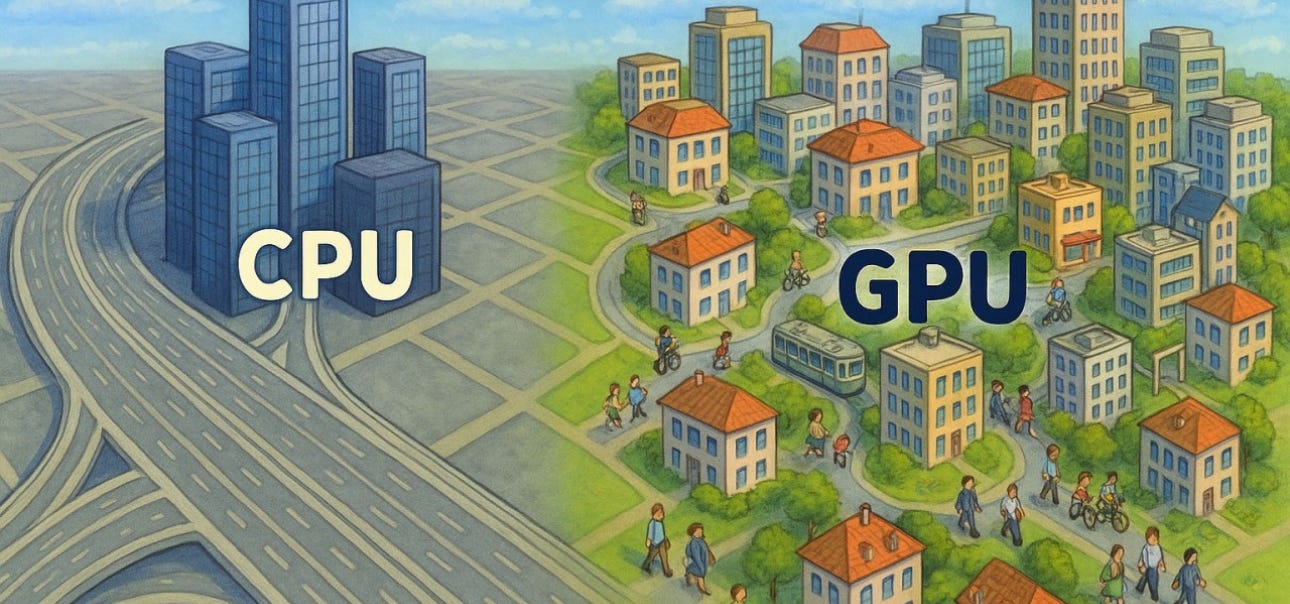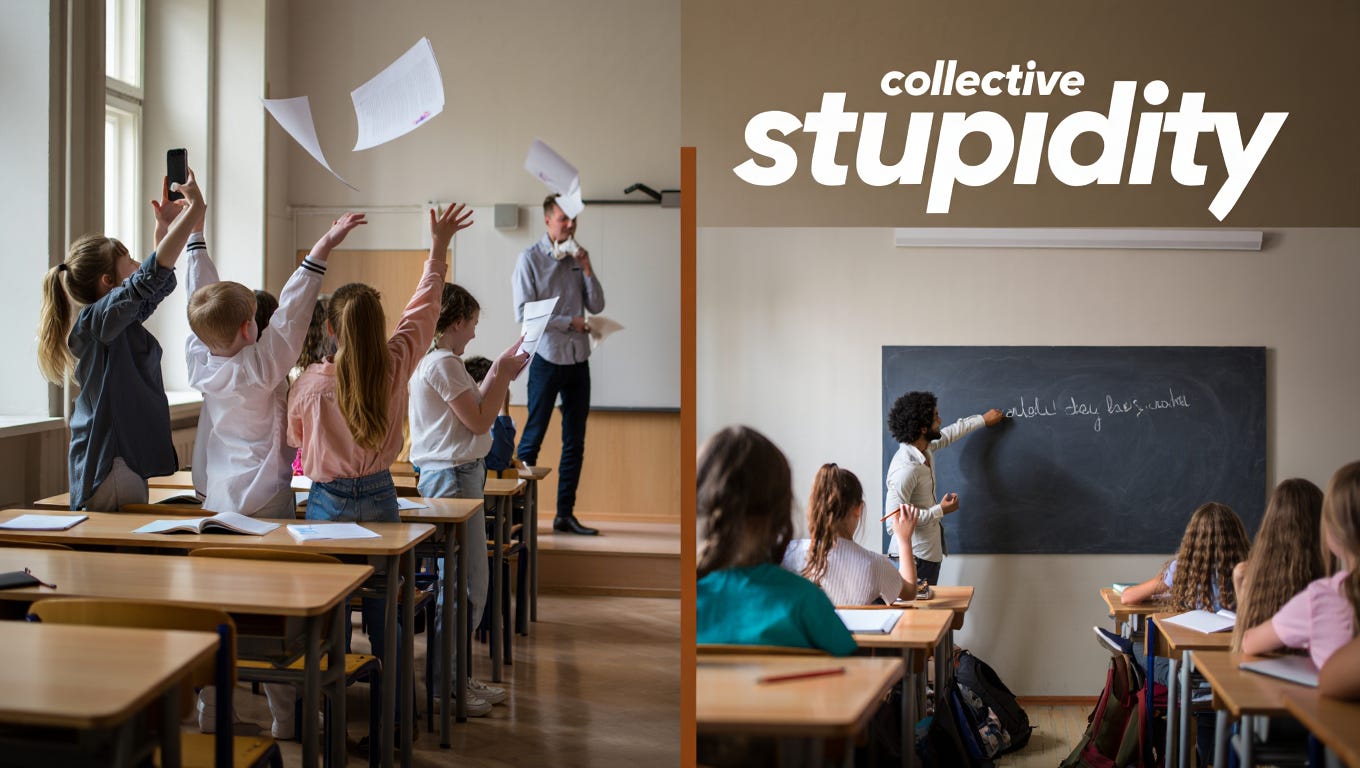Four For Friday | July 18, 2025
LF182 | The city as a GPU, collective stupidity, micro innovation districts, EU+AI = Good + AI tool: Emergent
Welcome to this week’s Four For Friday. Here’s four things that have piqued my interest this week, together with a bonus: AI Tip of The Week.
1. GPU: General Purpose Urbanism
A thought provoking analogy of how the best towns are like the best computers - distributed and emergent, rather than centralized and planned.
This para sums it up well: “Just as computing shifted from CPUs — rigid, predictable, and sequential — to GPUs — flexible, probabilistic, and exploratory — our cities need the same transformation. It’s time to move from Central Purpose Urbanism (CPU) focused on giant office buildings, fixed routines, and static separation between different activities to General Purpose Urbanism (GPU), which enables people and businesses to try out and discover new ways to live and work — and to coalesce and disperse quickly, as necessary.”
This comes to life looking at Tokyo, which has much more flexible zoning than other popular cities (NYC, San Francisco, Melbourne).
The So What? An interesting idea but only so far that a technological metaphor can take us when it comes to place design, given culture, politics and finance all play a part.
2. Collective Stupidity
Geoff Mulgan contends that “collective stupidity” is the opposite of collective intelligence - an unintended, emergent property of groups. Despite intelligent participants, groups often generate decisions demonstrably worse than those any member could have made alone. It’s a cascade of individually rational, often well‑meaning actions that nonetheless coalesce into self‑destructive outcomes.
Drivers of this are cognitive shortcuts and social conformity: people save mental effort and seek acceptance (don’t want to be kicked out of the tribe). Mulgan suggests designing structures to address these dynamics: encouraging dissent, rotating devil’s advocates, and ensuring accountability.
The So What? An important concept that not only starts to explain some of the head-scratching, self-immolating decisions (Brexit anyone?) in recent life, but also might help to alleviate some of them.
3. A new real estate play: Micro Innovation Districts
Dominic Endicott, author of Knowledge Towns, has released a white paper that argues that “Micro Innovation Districts” - compact, mixed‑use hubs anchored by higher ed (universities and research institutions) - are poised to be a big new real estate opportunity.
These new precincts combine talent, technology and industry - and he describes them as the physical equivalent of data centers. He estimates there to be $1 trillion in underused university campus land in the US, and 187 cities aiming to be become tech hubs. By agglomerating talent, research and innovation, Endicott reckons investors can get 2×–20× land value premiums and stable 5–7 % annual yields via ground leases.
This is about blending real estate, venture capital and placemaking to make districts generate self‑reinforcing economic ecosystems and promising to counteract the NIMBY-ism and resistance to development that is creating the housing shortage.
The So What? A powerful concept, but one that I’d like to add to: let’s add health and longevity to this rich innovation agenda for new precincts.
4. Europe takes the lead in AI for good
The Swiss are launching a new LLM model that aims to be open, democratic and mission-driven. ETH Zurich, EPFL, and CSCS are launching a fully transparent large language model trained on a carbon-neutral supercomputer, supporting over 1,000 languages and released under an Apache 2.0 license.
This fits well in the landscape of calls in Europe for AI infrastructure to be treated as public good. These mark a long overdue effort to rebalance the power of Big Tech, bringing local relevance, safety, and inclusion (something I got excited about recently).
The So What? I predict an inflection point when user outrage at Big Tech combines with the usability of new ‘self-sovereign’ (user owned), distributed technologies.
Bonus AI Tip of the Week: Emergent
A new kid on the vibe coding block: Emergent. Try pairing it with the new Grok 4 to build websites or apps; it’s remarkably capable.
That’s all for now - happy weekend everyone.
- Stephen





